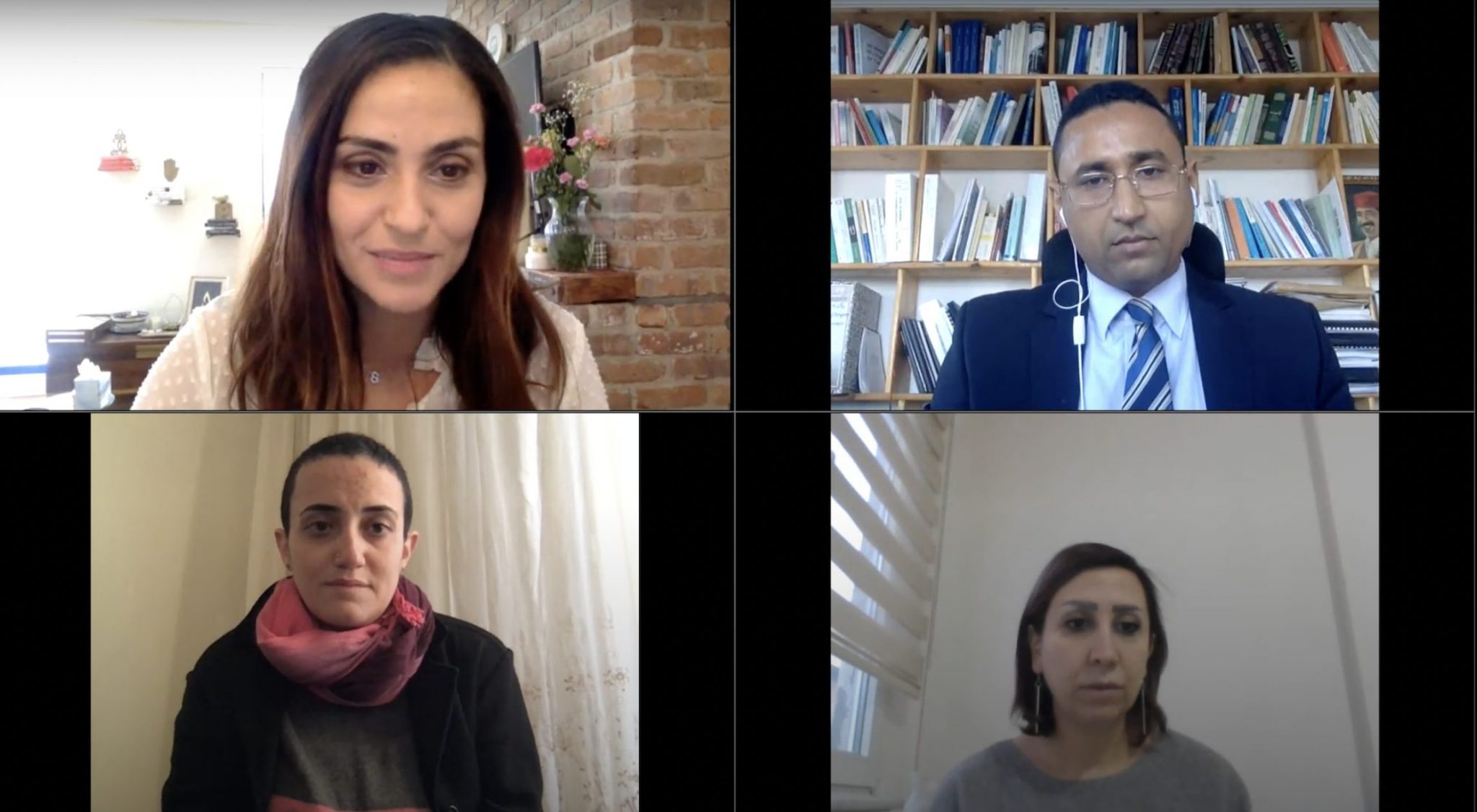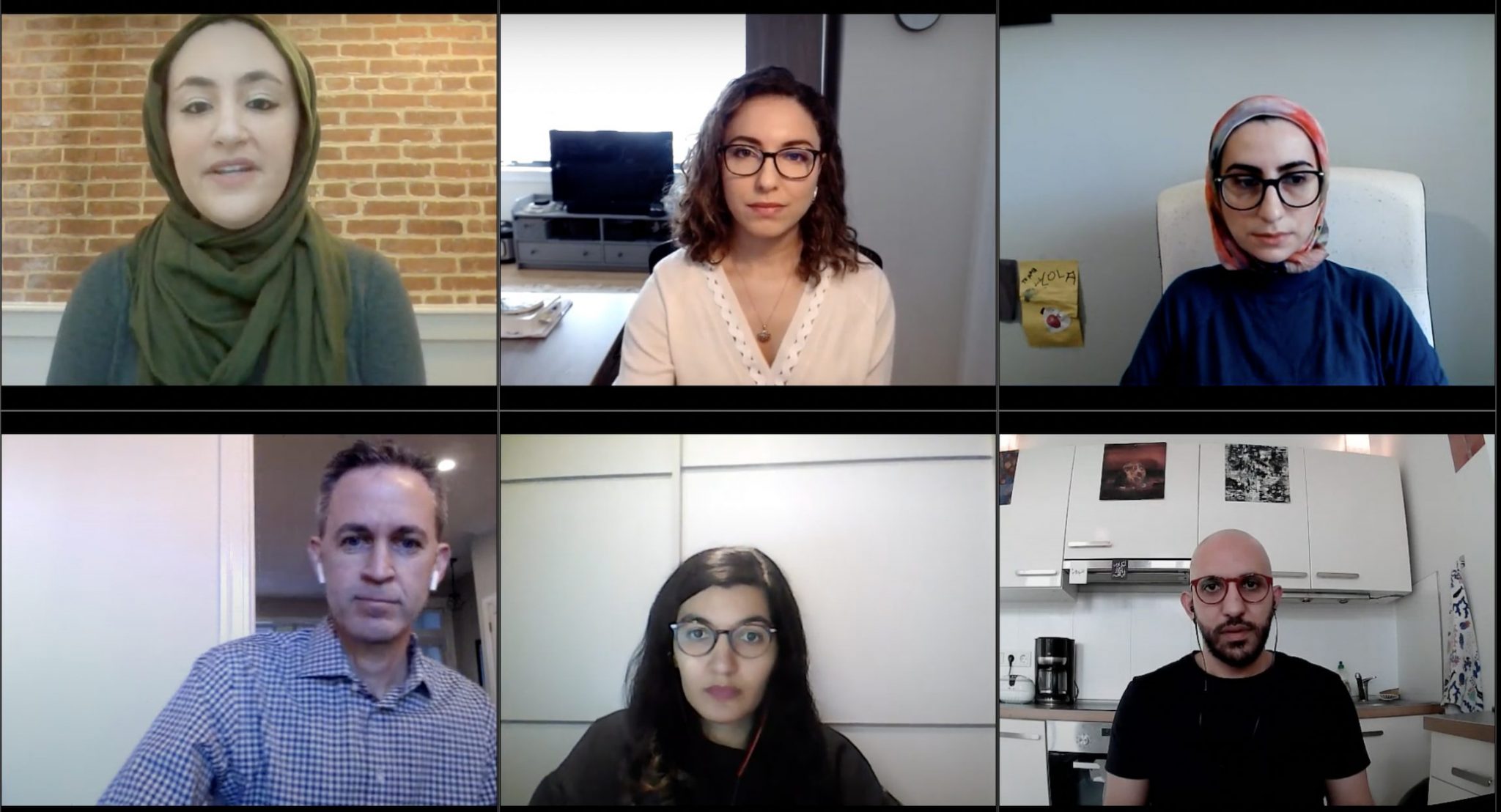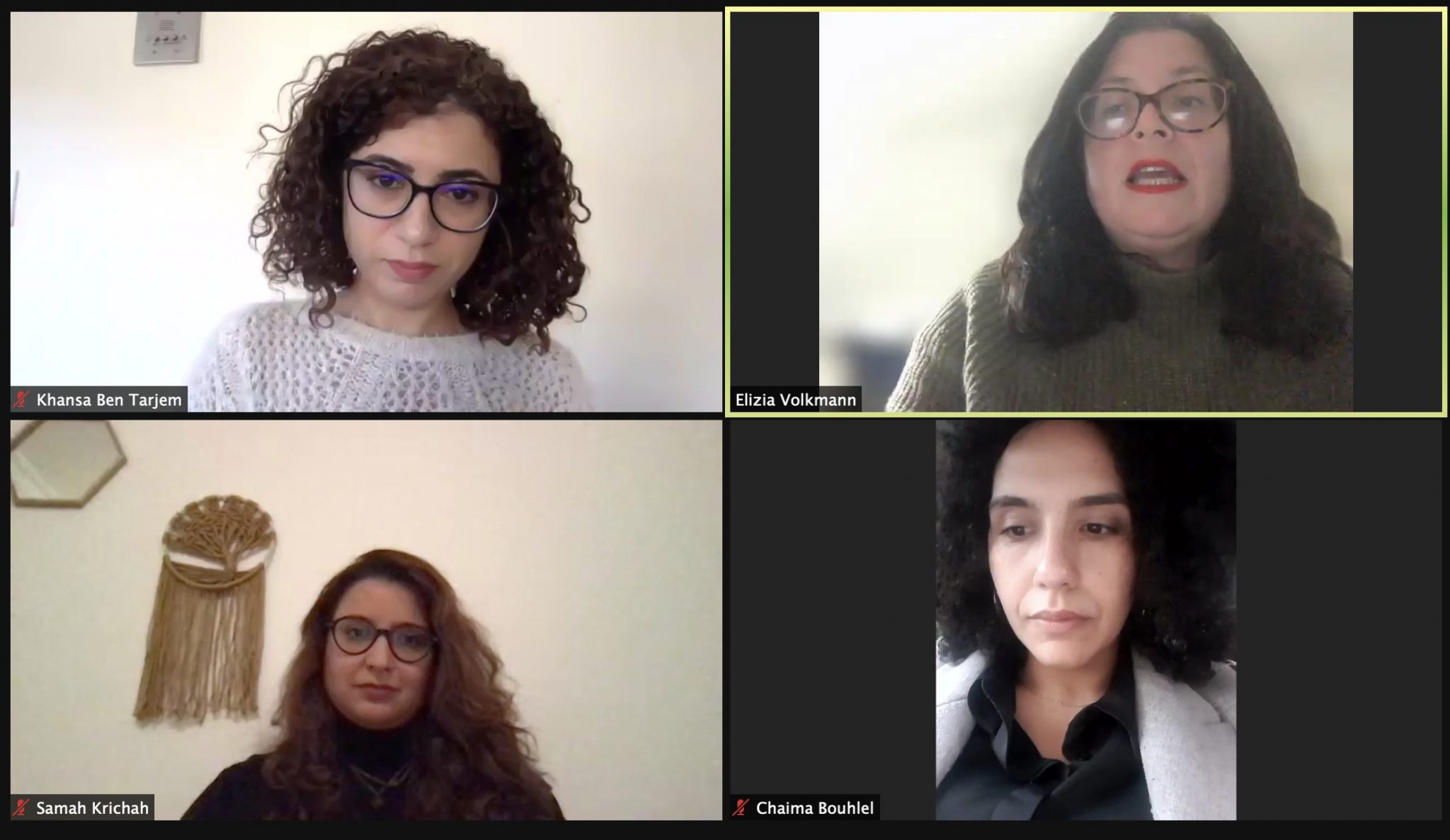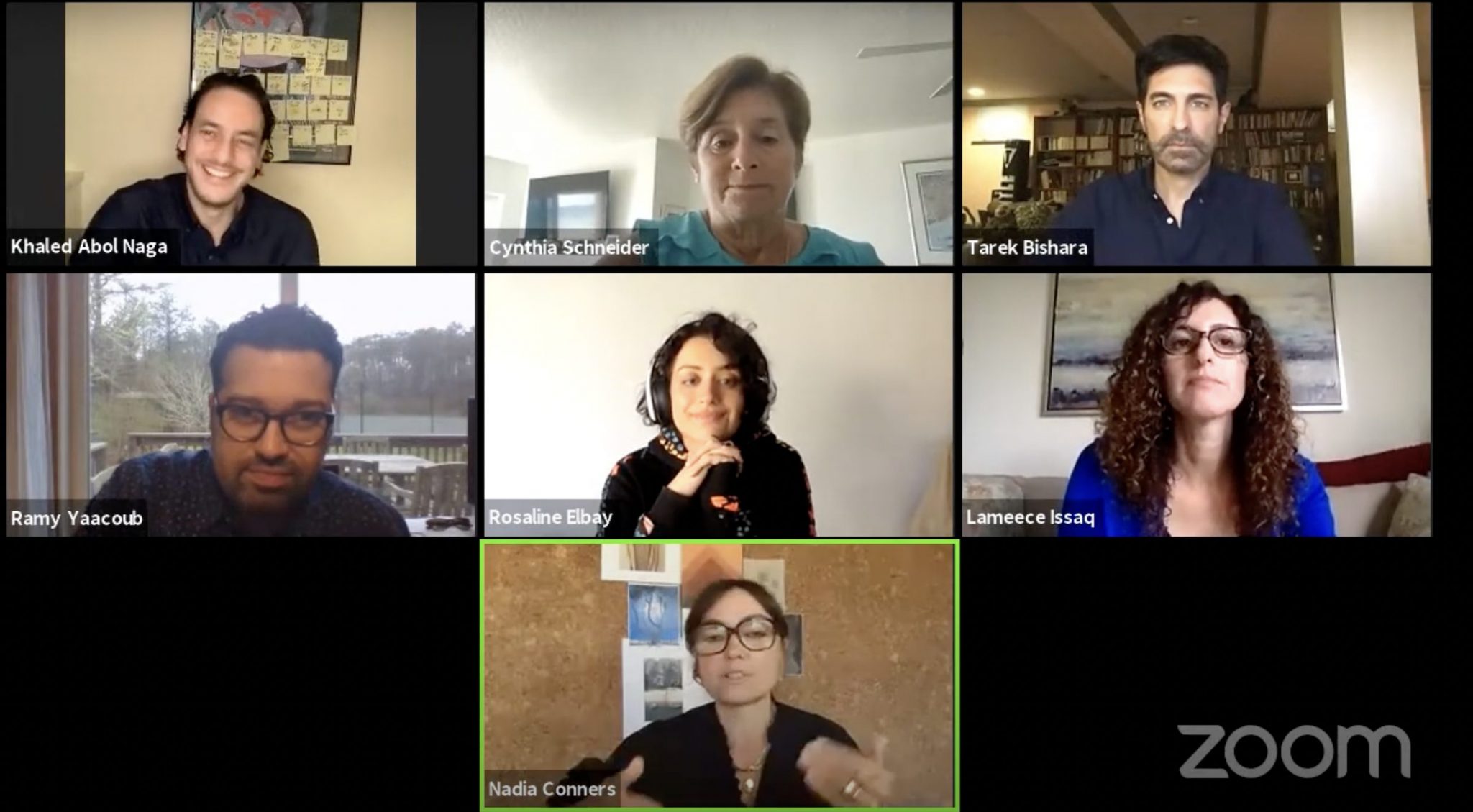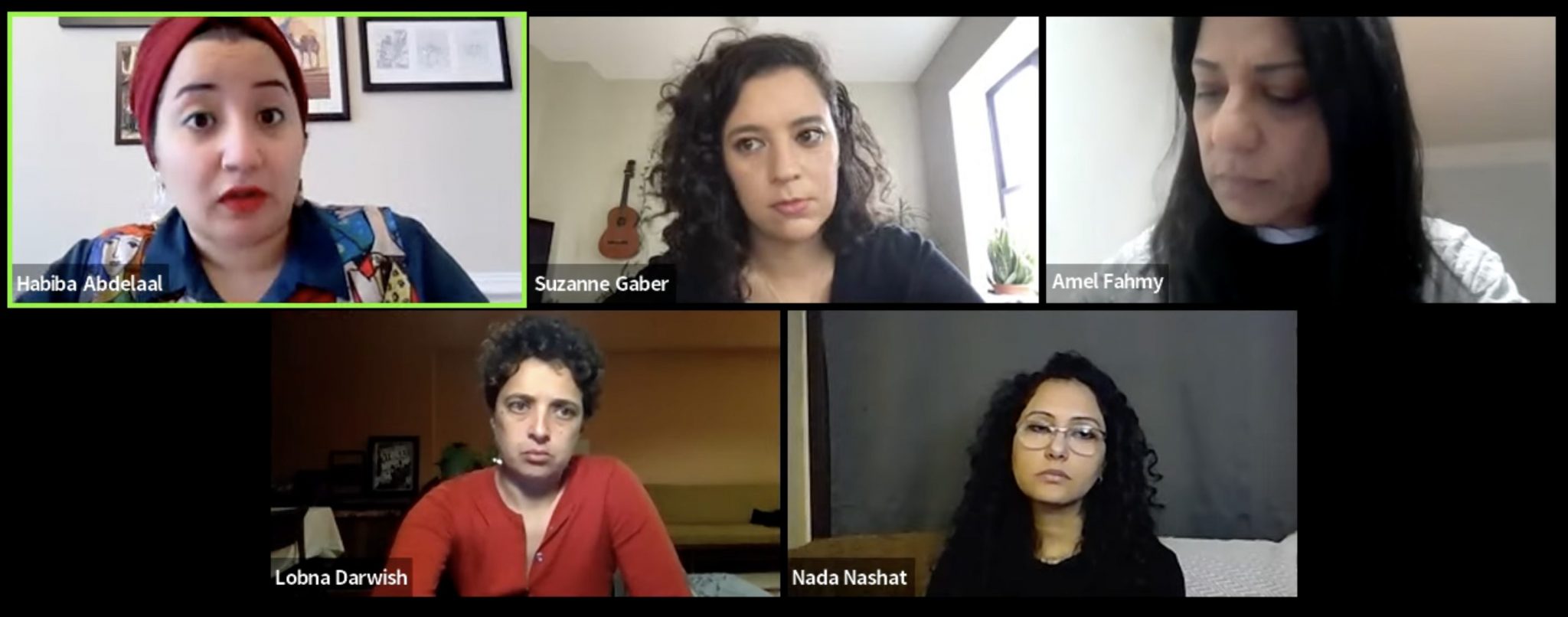In the third and final part of our series spotlighting TIMEP’s top performing content in 2021, we look back at the virtual events that you loved most this year. We pride ourselves on centering unheard perspectives and local voices from the region in these discussions, so that you and audience members around the world can hear from those who are on the ground, working directly on the issues at hand.
This year, the thought-provoking discussions you found most engaging tackled topics as diverse as organizing in Tunisia, Egypt, and Syria 10 years after the Arab Spring; representation of MENA stories in Western film, TV, and theatre; and sexual and gender-based violence in Egypt.
1. Ten Years On: Organizing in Tunisia, Egypt, and Syria
In January 2021, TIMEP hosted a virtual discussion with Aymen Zaghdoudi (Article 19), Lina Attalah (Mada Masr), and Noura Ghazi (Nophotozone), moderated by Sherine Tadros (Amnesty International).
In the last ten years since the 2010-2011 protests, the spaces, tools, and contexts through which individuals have come together to bring about change and mobilize across the MENA region have been dynamic. Looking specifically at Tunisia, Egypt, and Syria, how has organizing evolved on the ground, in cyberspace, and in exile? How have governments responded? What are the opportunities and challenges of this current moment, and what might the future of organizing in the region look like?
2. Ten Years On: Contesting Cyberspace in MENA
TIMEP hosted a virtual panel discussion on digital organizing with Khadeja Ramali (Independent Researcher), Noura Aljizawi (Citizen Lab), Ramy Raoof (Amnesty International Security Lab), and Wafa Ben-Hassine (Human Rights Attorney), moderated by David Kaye (former UN Special Rapporteur on the Right to Freedom of Opinion and Expression). Panelists explored social media, surveillance, cyberwarfare, censorship, and how human rights advocates are leveraging technology and the online space to organize – but also how governments have evolved to weaponize the very same tools in response.
3. Tunisia at a Crossroads
On November 16th, 2021, TIMEP convened a discussion on the events since July 25th in Tunisia and what lies ahead from a security, economic, and political perspective. The panel featured Nonresident Fellow Chaima Bouhlel, along with Khansa Ben Tarjem and Samah Krichah, and was moderated by Elizia Volkmann.
4. MENA Representation in Western Storytelling
5. Violence Against Women in Egypt: Between Policy and Practice
In Egypt, sexual and gender-based violence (SGBV) remains rampant, despite legal and constitutional measures that—in theory—should increasingly protect women from such abuses. In 2021, the Egyptian government passed several new laws to address various facets of gender-based violence and to bolster women’s rights in Egypt, yet too often there exists a significant gap between these measures on paper and in practice.
On December 9, 2021, on the 15th day of the UN’s 16 Days of Activism against Gender-Based Violence, TIMEP hosted a conversation with Habiba Abdelaal (TIMEP), Amel Fahmy (Tadwein), Nada Nashat (CEWLA), and Lobna Darwish (EIPR), moderated by journalist Suzanne Gaber, examining how advocates for women’s safety and empowerment can build upon new and older legislation in Egypt and improve upon measures that fail to sufficiently protect women, closing the gap between law and practice.
When you join us for these events, keep up with our panelists after the fact, and show your support for TIMEP’s ongoing efforts to amplify their voices by making a donation, you enrich the conversations themselves, as well as bolster our mission to ensure that advocates and experts like them are heard, that their work is strengthened, and that they as individuals are protected.
You can still make a tax-deductible gift to TIMEP before the end of the year to help us carve out these platforms and shape the global policy agenda. Donate now.

